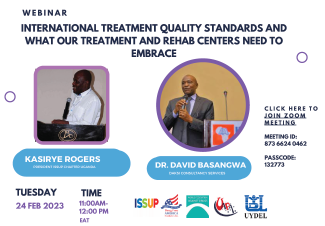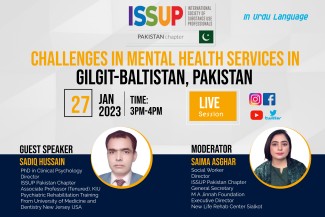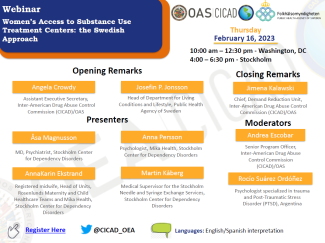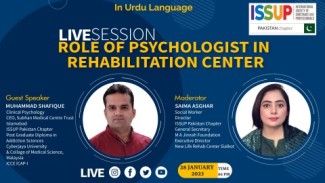Applying interventions designed to reduce and manage the symptoms of substance use disorders.
Treatment
BACKGROUND: Substance use disorders (SUDs) are associated with high rates of comorbid depression. Finding effective treatments for many of the substances of abuse is still an area of developing research. Repetitive transcranial magnetic...
International treatment quality standards and what our treatment and rehab centers need to embrace
Join ISSUP Uganda for an event on International standards on treatment and what our health, social workers and centre managers can do to provide a minimum treatment and care standards for young people.

Factors related to substance use treatment attendance after peer recovery coach intervention in the emergency department
Abstract Introduction Brief intervention with peer recovery coach support has been used to generate referrals to substance use disorder treatment from the emergency department (ED). This retrospective study evaluated factors associated with...
Profiles of quality of outpatient care use, associated sociodemographic and clinical characteristics, and adverse outcomes among patients with substance-related disorders
Abstract Background This study identified patient profiles in terms of their quality of outpatient care use, associated sociodemographic and clinical characteristics, and adverse outcomes based on frequent emergency department (ED) use...
Provider self-efficacy in delivering evidence-based psychosocial interventions: A scoping review
Abstract Background: Among the many variables that affect implementation of evidence-based interventions in real-world settings, self-efficacy is one of the most important factors at the provider level of the social ecology. Yet, research...
Challenges in Mental Health Services in Gilgit Baltistan, Pakistan
ISSUP Pakistan Chapter is going to conduct live session on "CHALLENGES IN MENTAL HEALTH SERVICES IN GILGIT BALTISTAN, PAKISTAN"

Women’s Access to Substance Use Treatment Centers: the Swedish Approach
You are invited to attend this webinar that CICAD is co-organizing with Sweden this coming February 16th, 2023. Live English/Spanish interpretation is provided.
Click here to register.

Current Scientific Evidence About Mutual Help Groups
Description
This presentation summarizes the current evidence about the effectiveness of mutual help groups and the mechanisms of action in these groups, including AA, SMART, LifeRing, and WFS. AA is comparably effective to well-implemented CBT. The evidence so far suggests that the other groups are comparably effective to AA. Further studies are in progress.
ISAM at Lisbon Addictions 2022
Here you can find a collection of ISAM presentation recordings that took place during Lisbon Addictions 2022 Recording 1: An introduction to ISAM Global Expert Network (ISAM-GEN) – Hamed Ekhtiari Recording 2: Development of a Global Expert...

